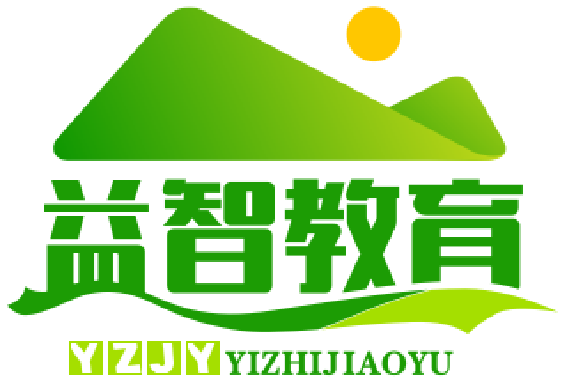国家 - 国家
中心主题: The State / The Nation

一级分支 1: 核心要素
定义: What makes a political entity a state? (一个政治实体要成为国家需具备什么要素?)
- Sovereignty (主权)
- Internal: Supreme authority within its own borders. (在国内的最高权威)
- Example: Making laws, collecting taxes.
- External: Independence and autonomy in foreign affairs. (在外交上的独立与自主)
- Example: Signing treaties, declaring war.
- Internal: Supreme authority within its own borders. (在国内的最高权威)
- Defined Territory (明确的领土)
- Internationally recognized borders. (国际公认的边界)
- Control over land, air, and sea within those borders. (对边界内陆地、领空、领海的控制)
- Permanent Population (定居的人民)
- A group of people living within the territory. (生活在领土内的一群人)
- The population can be diverse or homogeneous. (人口可以是多元的或同质的)
- Effective Government (有效的政府)
- A government that can maintain order and provide public services. (能够维持秩序并提供公共服务的政府)
- Has the monopoly on the legitimate use of force. (对合法使用暴力手段的垄断)
- Synonyms: Administration, Governance.
一级分支 2: 相关概念
辨析: How is "State" different from similar terms? (“国家”与相似术语有何不同?)
- Nation (民族)
- Focus: Shared identity, culture, language, history, or ancestry. (焦点:共享的身份、文化、语言、历史或血统)
- Can exist without a state. (可以没有国家而存在)
- Example: The Kurdish people, the Palestinian people.
- Key Term: Nationalism (民族主义)
- Country (国家/地区)
- A more general and interchangeable term with "state." (与“state”更通用、可互换的术语)
- Often refers to a geographical area. (常指一个地理区域)
- Example: "I'm traveling to that country." (我要去那个国家。)
- Government (政府)
- Focus: The political organization that administers a state. (焦点:管理国家的政治组织)
- The part of the state that rules. (是国家的“统治”部分)
- The state is the broader entity; the government is its administrator. (国家是更广泛的实体;政府是其管理者)
- Nation-State (民族国家)
- A state where the boundaries of the state and the nation largely coincide. (国家边界与民族边界大致重合的国家)
- Example: Japan, Iceland (high degree of ethnic and cultural homogeneity).
一级分支 3: 国家功能与角色
What does a state do? (国家做什么?)
- Maintaining Order (维持秩序)
- Police, military, courts, and prisons. (警察、军队、法院、监狱)
- Upholding the rule of law. (维护法治)
- Providing Public Services (提供公共服务)
- Education (公立学校)
- Healthcare (公立医疗)
- Infrastructure (道路、桥梁、公共设施)
- Social Welfare (社会福利、失业救济)
- Economic Regulation (经济调控)
- Monetary policy (货币政策) by the central bank.
- Fiscal policy (财政政策) through taxation and spending.
- Setting economic standards and regulations. (制定经济标准与法规)
- National Defense (国防)
- Protecting the nation from external threats. (抵御外部威胁)
- Maintaining an army, navy, and air force. (维持陆、海、空三军)
- Diplomacy & Foreign Policy (外交与对外政策)
- Representing the state in the international community. (在国际上代表国家)
- Engaging in international relations, alliances, and trade. (参与国际关系、联盟和贸易)
一级分支 4: 政府类型
How is a state governed? (国家如何被治理?)
- Democracy (民主制)
- Power rests with the people. (权力属于人民)
- Sub-types: Direct Democracy (直接民主), Representative Democracy (代议制民主 / Republic共和制)
- Authoritarianism (威权主义)
- Power is concentrated in a single leader or a small elite. (权力集中于单一领袖或精英小团体)
- Limited political freedoms. (有限的政治自由)
- Totalitarianism (极权主义)
- The state seeks total control over all aspects of public and private life. (国家试图控制公共和私人生活的所有方面)
- The most extreme form of authoritarianism. (威权主义的极端形式)
- Monarchy (君主制)
- A king, queen, or emperor holds power. (国王、女王或皇帝掌握权力)
- Sub-types: Absolute Monarchy (绝对君主制), Constitutional Monarchy (君主立宪制)
- Theocracy (神权政体)
Religious leaders rule in the name of a god or deity. (宗教领袖以神的名义进行统治)
一级分支 5: 国际关系中的国家
How states interact with each other? (国家之间如何互动?)
- Sovereign Equality (主权平等)
- All states are legally equal, regardless of size or power. (所有国家在法律上平等,无论大小或强弱)
- A core principle of the UN Charter. (《联合国宪章》的核心原则)
- International Law (国际法)
- A set of rules governing relations between states. (规范国家间关系的一系列规则)
- Key Concepts: Treaties (条约), Diplomatic Immunity (外交豁免), Human Rights Law (人权法)
- International Organizations (国际组织)
- Forums for states to cooperate. (国家合作的平台)
- Examples:
- United Nations (UN): Maintains international peace and security. (维护国际和平与安全)
- World Trade Organization (WTO): Regulates international trade. (管理国际贸易)
- European Union (EU): A political and economic union. (一个政治和经济联盟)
- Globalization (全球化)
- Increasing interconnectedness of countries through trade, technology, and culture. (通过贸易、技术和文化日益加深的国家间相互联系)
- Effects: Erosion of some state powers (e.g., economic policy) but also new forms of cooperation. (影响:削弱了一些国家权力,但也带来了新的合作形式)
一级分支 6: 当代挑战
What challenges do states face today? (当今国家面临哪些挑战?)
- Globalization vs. Nationalism (全球化 vs. 民族主义)
Tension between global integration and the desire to protect national identity and interests. (全球一体化与保护国家身份和利益之间的张力)
- Failed States (失败国家)
- States that have lost the ability to perform basic functions (maintain order, provide services). (已丧失基本功能的国家)
- Often leads to chaos, civil war, and humanitarian crises. (通常导致混乱、内战和人道主义危机)
- Transnational Issues (跨国问题)
- Problems that no single state can solve alone. (任何单一国家都无法独自解决的问题)
- Examples: Climate Change (气候变化), Pandemics (全球大流行病), Terrorism (恐怖主义), Cybersecurity (网络安全)
- Internal Conflict & Secession (内部冲突与分裂)
- Ethnic, religious, or political divisions within a state. (国家内部的种族、宗教或政治分歧)
- Example: Civil wars, independence movements (e.g., Catalonia, Scotland).
这个思维导图从定义、概念辨析、功能、政体、国际关系和当代挑战六个维度,系统地构建了关于“国家”的知识框架,它不仅涵盖了政治学的基础知识,也融入了国际关系和全球化的视角,能够帮助您全面、深入地理解“国家”这一复杂而核心的概念。











